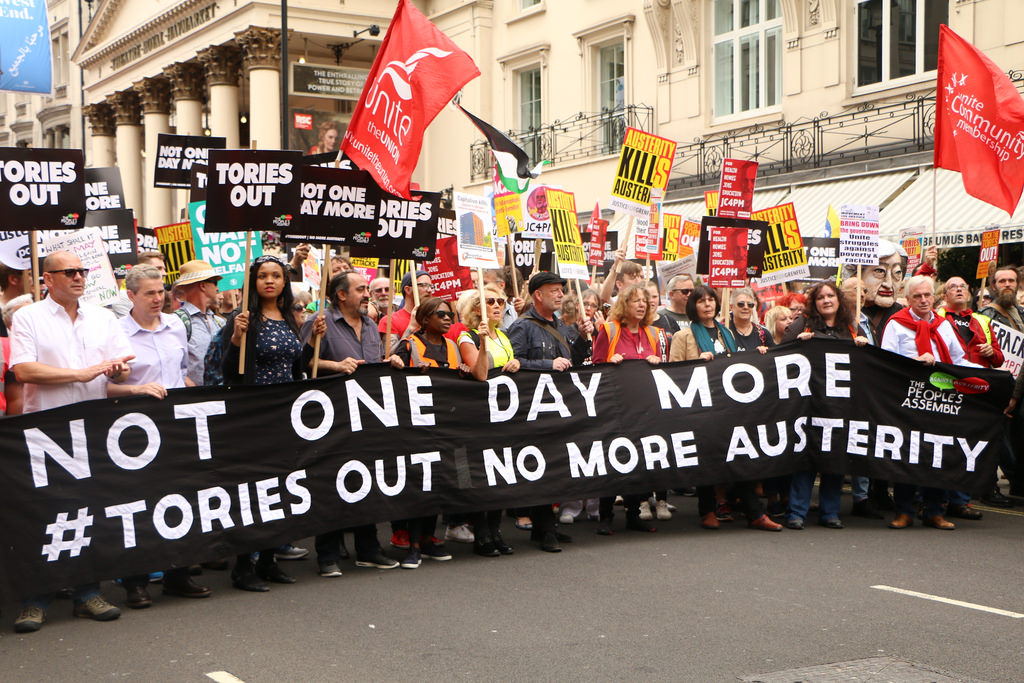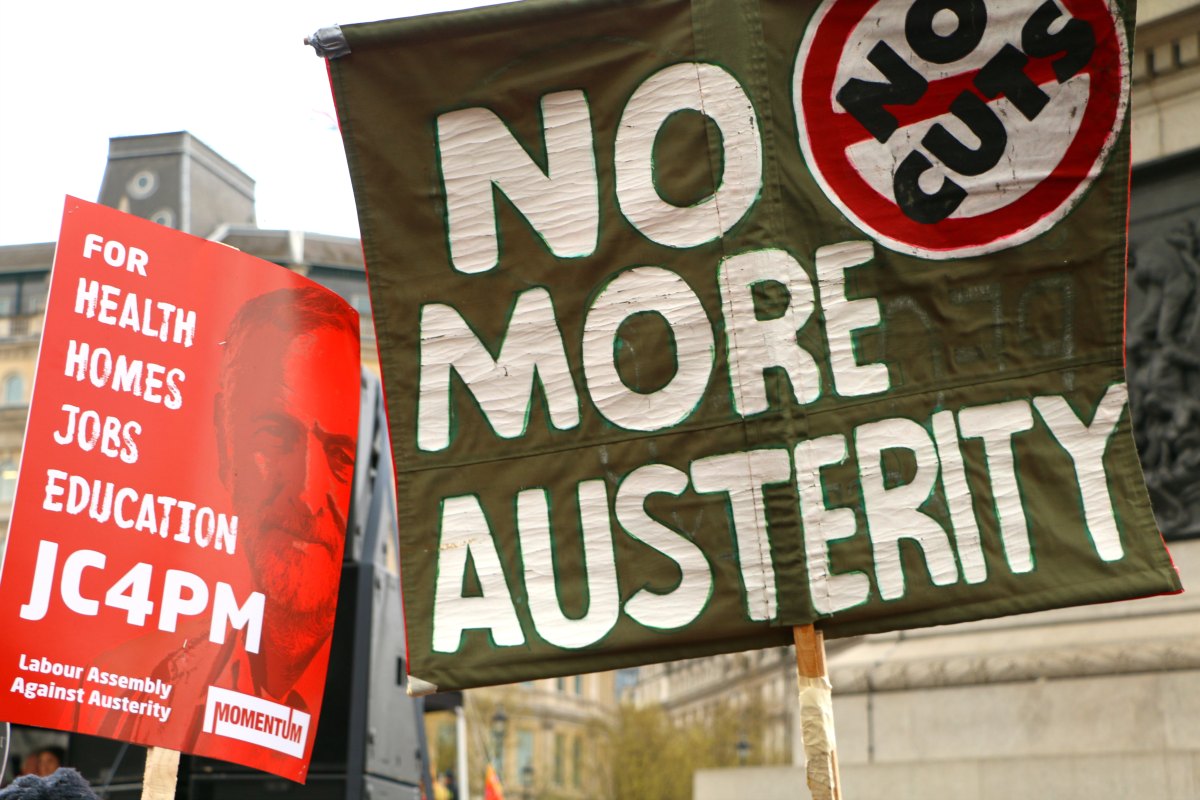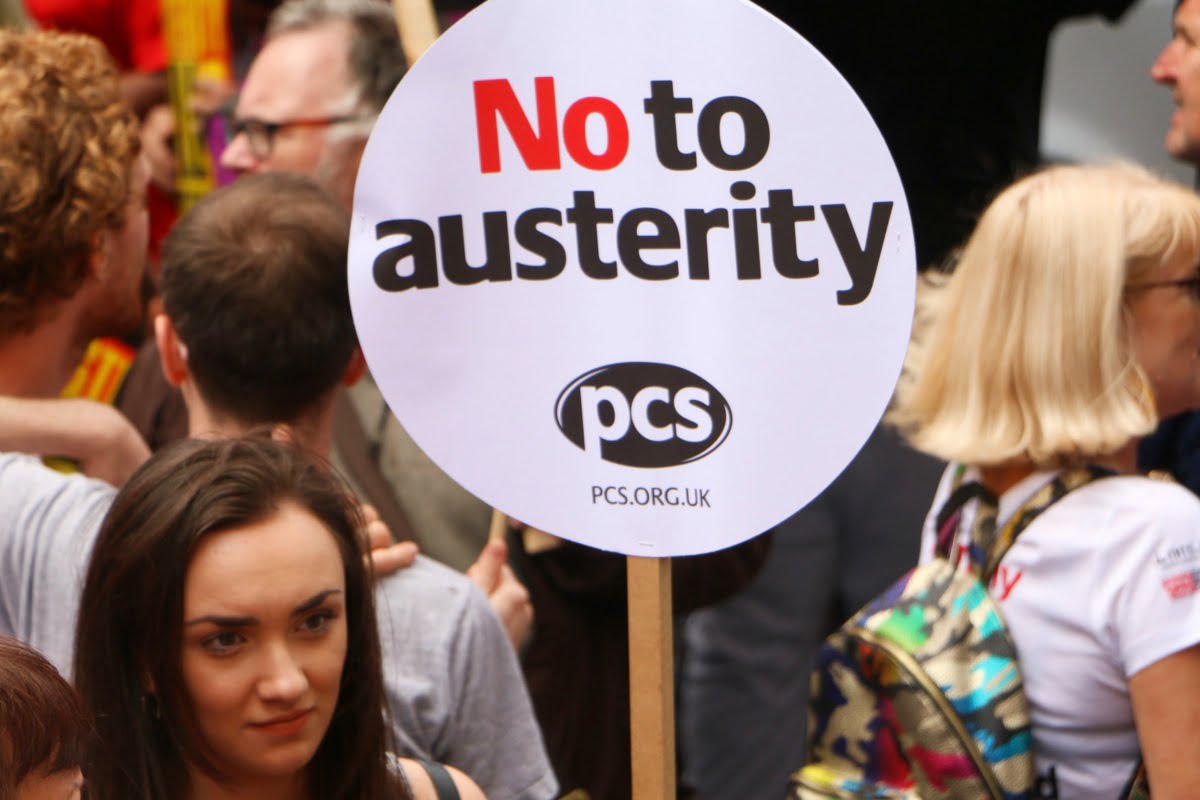After years of being told that we must all tighten our belts, it is clear that the vast majority are no longer willing to accept the Tories’ rhetoric. Thanks to the Corbyn movement, the economic narrative has moved on.
For hundreds of thousands of public sector workers it is hard to remember a time when cuts and austerity weren’t a constant threat. For almost ten years, the big issue in every trade union branch has been ‘budgets’ and cuts.
The Tory line, of course, has been that they are squeezing out ‘waste’; that they are being ‘responsible’ in dealing with the alleged profligacy of the Labour government under Blair and Gordon Brown.
In truth, Labour’s reforms, such as Sure Start Centres and educational programmes like Aim Higher, were simply relatively small-scale programmes aimed at addressing the damage that Thatcherism had already done in working class communities. If anything, they were done on the cheap. And of course many programmes were channelled through PFI, or done ‘in partnership’ with the private sector.
No longer swallowing the lies
 The Tories’ big lie was designed to justify placing the burden of the crisis on the backs of working people. In the meantime, the bosses and the banks were bailed out.
The Tories’ big lie was designed to justify placing the burden of the crisis on the backs of working people. In the meantime, the bosses and the banks were bailed out.
Despite their best efforts, however, the impact of the cuts can’t easily be hidden. This was dramatically illustrated recently by the crisis in the Tory-run Northamptonshire County Council, which faces a £70 million budget deficit this year.
At the end of last month, 2,000 head teachers marched through London protesting against education funding levels. Head teachers are not historically noted for their radicalism. This illustrates the extent of the problems facing education. As the Guardian reported:
“A survey by the National Association of Head Teachers (NAHT) found that almost three-quarters of school leaders expect they will be unable to balance their budgets in the coming financial year. An earlier survey found that 26% of maintained secondary schools in England ran a budget deficit in 2016-17, compared with less than 9% three years earlier.”
The BBC interviewed a number of the marchers. One woman explained: “In talking to my colleagues this morning, many of them have said that they have never, ever, come out like this before. This is not for us; this march is all about the children.”
Against austerity
 Recent polls confirm this changed mood in society, with public opinion now shifted firmly against austerity.
Recent polls confirm this changed mood in society, with public opinion now shifted firmly against austerity.
The latest British Social Attitudes Survey revealed that some 60% of people believe that the government should raise taxes to pay for increased levels of services. This is a significantly higher proportion than the 49% in 2016 and 31% in 2010 (at the height of the Cameron and Osborne led Tory propaganda campaign).
Significantly, there is a big rise in support among Tory voters for a policy of higher taxation and greater funding of services, with an increase of 18 percentage points since 2015. As the Guardian noted:
“The research showed that the public’s top priority in 2017 was health, with 54% of voters backing more spending on the NHS, followed by education (26%) and housing (7%). The least popular areas were social security (2%), public transport (1%) and overseas aid (0%).”
Another important finding was that older people were more willing to see increased taxes than younger people. This most likely reflects the fact that older people are most likely to use many of these services, especially the NHS.
But it also suggests that the idea that older people are more likely to vote Tory could be challenged by a clear and determined socialist programme. Already, Theresa May has had to move Tory rhetoric away from austerity, promising in her recent speech to the Tory Party conference that the hard times are over.
The crisis of capitalism
 This shows how far the paradigm has shifted under Corbyn. The disaster of privatisation and the impact of the cuts, combined with a solid anti-cuts opposition from the tops of the Labour Party, have helped to change the economic narrative. Now it is austerity and privatisation which are dirty words, whilst support for nationalisation is rising.
This shows how far the paradigm has shifted under Corbyn. The disaster of privatisation and the impact of the cuts, combined with a solid anti-cuts opposition from the tops of the Labour Party, have helped to change the economic narrative. Now it is austerity and privatisation which are dirty words, whilst support for nationalisation is rising.
At the same time, the effect of cuts is now too great to go unnoticed. The NHS, education, and adult and children’s social care – to name but three areas – are all in crisis. The message is getting through to people that something has to give.
In fact, it is evident that the system as a whole is in crisis. The crisis of capitalism is undermining services that a few years ago were taken for granted because they were seen as absolute essentials. Today, every service is at risk. Cuts are destroying the very fabric of our communities.
In attempting to address this crisis, Jeremy Corbyn and the Labour leadership will inevitably come under enormous pressure from the ruling class: from the press, the media, the City of London, and from the state itself.
Every advance will need to be fought for. The call for Labour to adopt a bold socialist programme is essential.
Reverse the cuts! Labour to power on a socialist programme!






